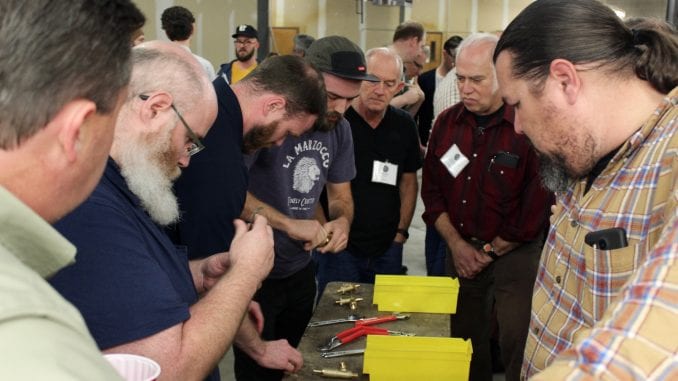
Until now, there have been very few ways to learn the skills necessary to be a coffee technician. The Coffee Technicians Guild hopes to change that.
There’s nothing worse than when something stops working. Espresso machines, brewers, grinders ”they break all the time, and when a machine breaks, all things come to a halt. As a business owner, you have to sheepishly explain to customers why you don’t have coffee while tinkering with pieces hoping you can fix the problem on your own. As a wholesaler, you often have to drop everything you’re doing to attend to a client’s problem, often unsure of what the problem is until you get there. And yet, there are very few coffee technicians, and their work has yet to be formally recognized as a necessary and teachable skill set in the coffee industry.

Recently, the SCAA has attempted to address this. This April, the SCAA announced its intention to explore the creation of new guilds, including one for technicians and producers, and this past November, a group of techs held a summit intended to kick off the start of the guild, called the Coffee Technicians Guild (CTG). œCoffee Technicians have not been formally represented by a guild up to this point, and there have been no formal education programs for this area of focus. There is clear momentum towards developing a guild for coffee technicians, and it has been building over the past couple of years, says SCAA’s Executive Director Ric Rhinehart, and the CTG Summit will hopefully kick off a variety of programs and events dedicated to the expansion and support of the coffee technician profession.

The CTG seeks to address two major challenges facing technicians: educational resources and barriers to entrance. On the subject of education, the CTG will offer classes specifically tailored to teaching and pushing technical skills. œWe seek to offer a curriculum that develops the fundamental core competencies of the specialty coffee equipment technician. This will allow service providers a mechanism to speed up development of tool ready technicians as well as enhance the hiring process, said Shad Baiz, Chair of the Executive Council. Much like the Barista and Roasters Guilds, the CTG (which will be a global organization and was launched in partnership with the SCAE) will establish best practices and requisite training and education pathways that will help standardize the profession.

Secondly, the CTG hopes to provide more opportunities for people to learn how to become coffee technicians. œCurrently the development of technicians is a slow process relying primarily on mentorship and on the job training, Shad mentions, and the result has been both a shortage of available technicians in most areas and a lack of clear pathways to learn these skills if someone is interested. The CTG hopes to make classes accessible for anyone interested, and has encouraged people to reach out to them regardless of how much experience they have. It’s no secret that the majority of coffee technicians are men, but by creating clear pathways the CTG will allow more diverse members of the coffee community to gain access to the skills needed to be a proficient tech.

So if you’ve ever been curious about why your espresso machine is making that funny sound or how to properly change and replace the burrs on your Mazzer grinder, visit the CTG website and learn more about upcoming classes and programming, and help build a guild dedicated to the hard workers who keep our machines rolling. It’s still early in the planning and development of the guild, so you can be integral in the shaping and growth of this important sub sect of coffee professionals.

